Zhaoyang You
KD3A: Unsupervised Multi-Source Decentralized Domain Adaptation via Knowledge Distillation
Dec 08, 2020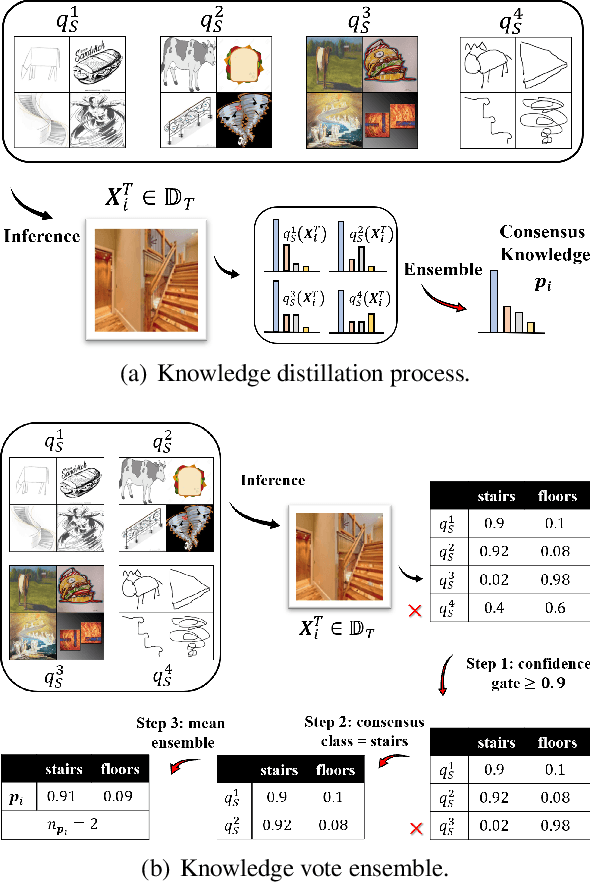
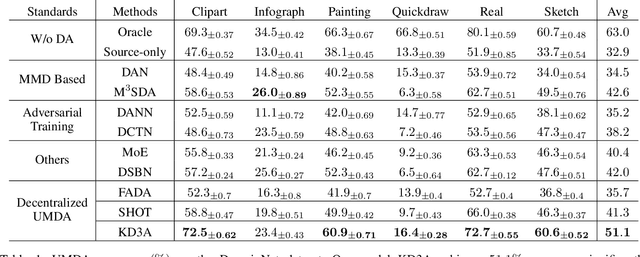
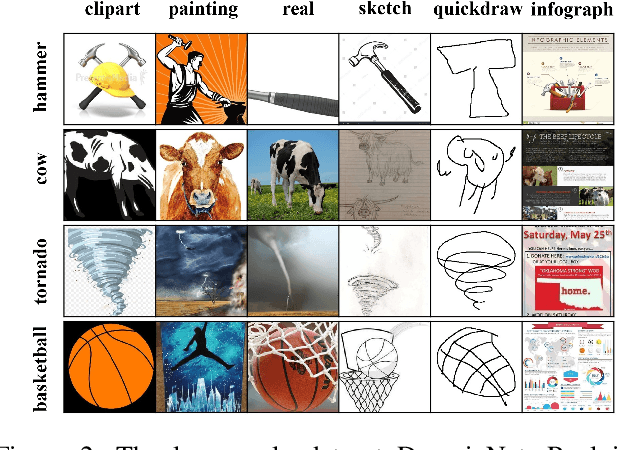
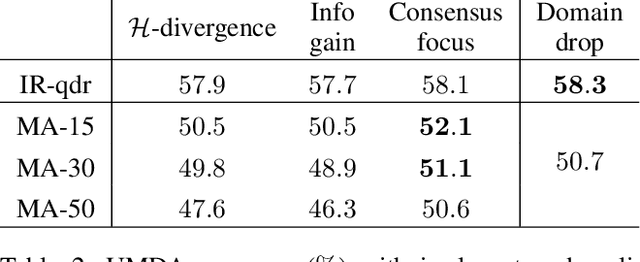
Abstract:Conventional unsupervised multi-source domain adaptation (UMDA) methods assume all source domains can be accessed directly. This neglects the privacy-preserving policy, that is, all the data and computations must be kept decentralized. There exists three problems in this scenario: (1) Minimizing the domain distance requires the pairwise calculation of the data from source and target domains, which is not accessible. (2) The communication cost and privacy security limit the application of UMDA methods (e.g., the domain adversarial training). (3) Since users have no authority to check the data quality, the irrelevant or malicious source domains are more likely to appear, which causes negative transfer. In this study, we propose a privacy-preserving UMDA paradigm named Knowledge Distillation based Decentralized Domain Adaptation (KD3A), which performs domain adaptation through the knowledge distillation on models from different source domains. KD3A solves the above problems with three components: (1) A multi-source knowledge distillation method named Knowledge Vote to learn high-quality domain consensus knowledge. (2) A dynamic weighting strategy named Consensus Focus to identify both the malicious and irrelevant domains. (3) A decentralized optimization strategy for domain distance named BatchNorm MMD. The extensive experiments on DomainNet demonstrate that KD3A is robust to the negative transfer and brings a 100x reduction of communication cost compared with other decentralized UMDA methods. Moreover, our KD3A significantly outperforms state-of-the-art UMDA approaches.
Federated Unsupervised Representation Learning
Oct 18, 2020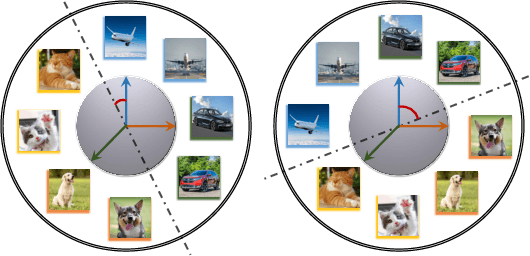


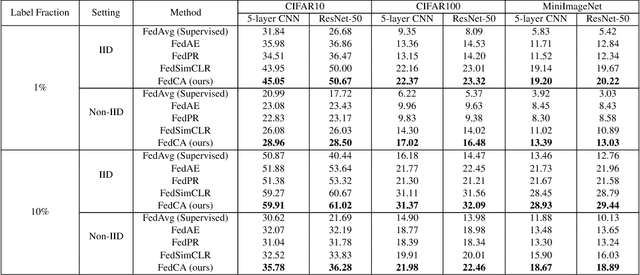
Abstract:To leverage enormous unlabeled data on distributed edge devices, we formulate a new problem in federated learning called Federated Unsupervised Representation Learning (FURL) to learn a common representation model without supervision while preserving data privacy. FURL poses two new challenges: (1) data distribution shift (Non-IID distribution) among clients would make local models focus on different categories, leading to the inconsistency of representation spaces. (2) without the unified information among clients in FURL, the representations across clients would be misaligned. To address these challenges, we propose Federated Constrastive Averaging with dictionary and alignment (FedCA) algorithm. FedCA is composed of two key modules: (1) dictionary module to aggregate the representations of samples from each client and share with all clients for consistency of representation space and (2) alignment module to align the representation of each client on a base model trained on a public data. We adopt the contrastive loss for local model training. Through extensive experiments with three evaluation protocols in IID and Non-IID settings, we demonstrate that FedCA outperforms all baselines with significant margins.
 Add to Chrome
Add to Chrome Add to Firefox
Add to Firefox Add to Edge
Add to Edge